DevOps shortens the software development lifecycle, but finding and hiring skilled DevOps practitioners is time-consuming and expensive. There is, however, an online platform for DevOps training. Tom Halpin and Chris Swan explain how the Online DevOps Dojo helps users upgrade their skill sets.
Coming Up With the Idea
Right after their chief HR officer expressed concerns regarding retraining, Chris put together a few people from their company and started a workshop. The number of people who attended, however, was small. So Chris and his colleagues put the workshop’s code into Katacoda, then created DevOps Dojo White Belt, a web platform to teach people about DevOps.
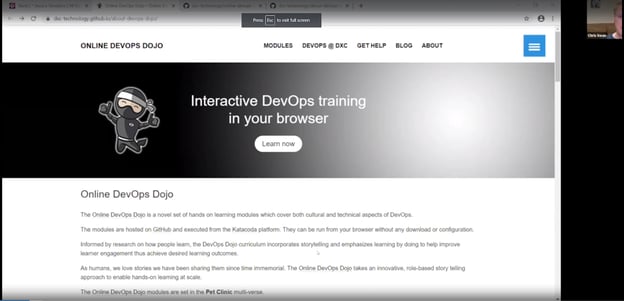
Over time, more people developed in-depth modules based on the white belt foundation. Internally, they created a yellow belt, and they recently made some modules from the yellow belt open source. The code is available in GitHub, and you are welcome to work with it per the scope in the license agreement.
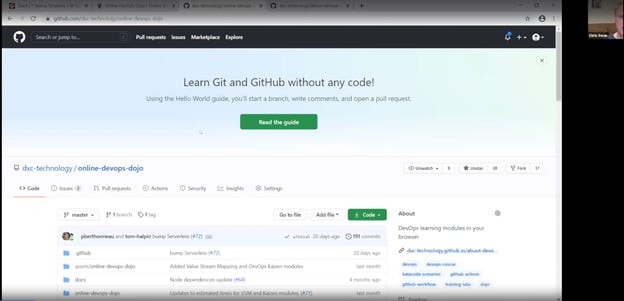
About the Online DevOps Dojo
At All Day DevOps 2020 Chris introduces us to the DevOps Dojo. The curriculum focuses on teaching people by incorporating storytelling in a fictional pet clinic.
Tom presents a briefing about the modules they developed. Although there are many advanced modules like shift left security, continuous integration, and value stream mapping, first-timers should start with the welcome module.
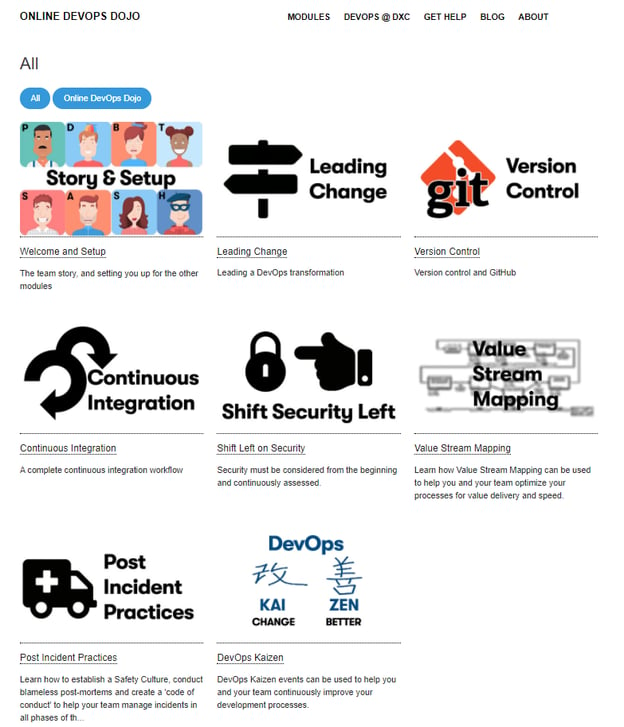
The Welcome Module
The welcome module takes the learner to the sandboxed environment of Katacoda. In the beginning, the module introduces the characters. Just like in the real world, there is a CEO, developer, tester, product owner, and even a hacker. There are many pop culture references so that users become more engaged.
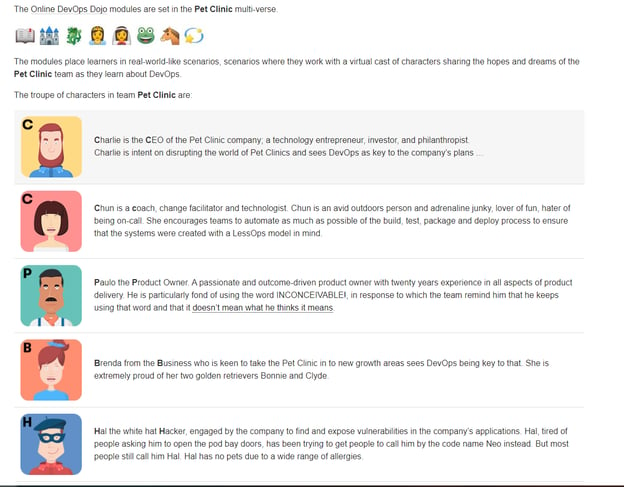
To start, you have to run the copy command that creates a repository dedicated to you. After that, you have to enter the access token. Once the repository is created, you are good to go.
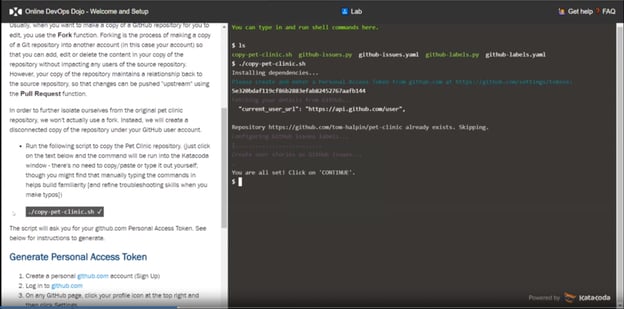
There is a support bot as well that you should install. If you run into trouble or need to review your pull requests, the bot will help you with that. That’s it for the welcome module. Then Tom briefs us about the other modules based on what DevOps practitioners will find useful in the industry.
Other Modules
One great thing about Katacoda is the sandbox experience. You are free to fork in the GitHub code. The only real limitation is a sixty-minute deadline to complete each module.
Users will find cultural modules like "Leading Change" that will guide them through DevOps transformation. Other modules are technical, such as one on shift left security that ask users to hunt for real-time vulnerabilities in the Katacoda environment.
Chris and Tom then walk us through a few new modules that they added after the initial launch.
New Modules Added After the Initial Launch
Value Stream Mapping
The modules start with the pet clinic characters leading happy lives. They have a well-defined DevOps culture in place. Once you start the module, it will take you back in time when the situation was not as good as the present.
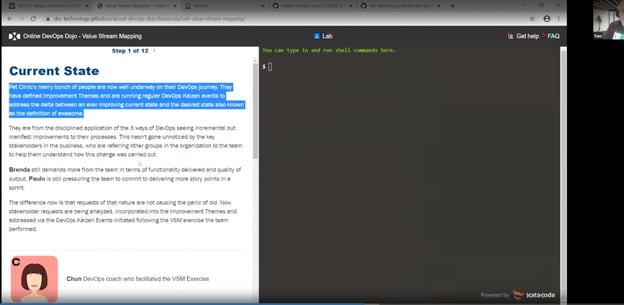
You will find the characters in an incident room, trying to figure out the problem areas. Then the coach comes along and walks you through value stream mapping.
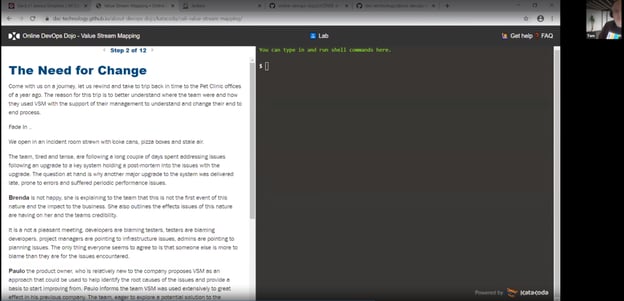
Value stream mapping will teach you how to prioritize backlogs. The next important module is DevOps Kaizen.
DevOps Kaizen
Kaizen is a Japanese word that means continuous improvement. DevOps Kaizen prioritizes focus areas from the value stream map. You will learn how to improve by moving from the current problem to the next one and so on.
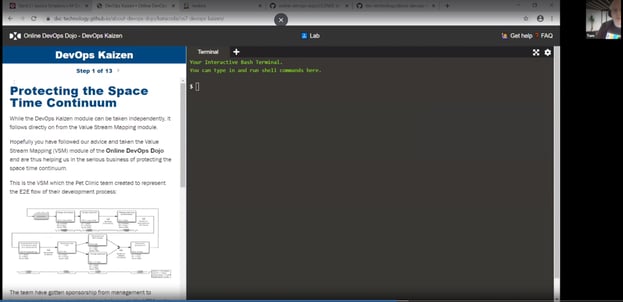
If you need to do some troubleshooting, click on the Get Help button. Community users will jump in to help you.
Wrapping It Up
One of the best things about the Online DevOps Dojo is that the Python-based tutorials are interactive. Instead of reading normal text or a slide show, users will learn everything through dialogue with the characters.
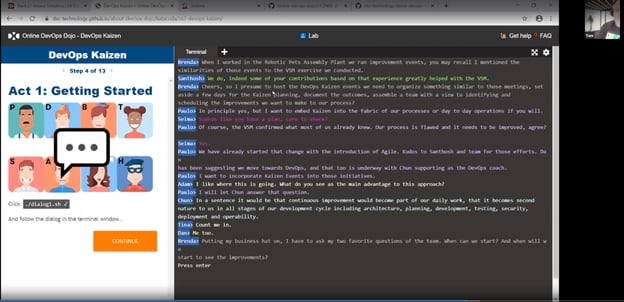
Unlike in the white belt modules, the yellow belt bot will review your pull requests and even ask you to make changes if something is wrong with your code.
Chris concludes by encouraging the audience to go through the modules, work on the open-source code, and raise pull requests if anything needs improvement.



.png?width=610&name=J1_ModernCybersecurityBook_Promo%201200x628%20v2@2x%20(1).png)



